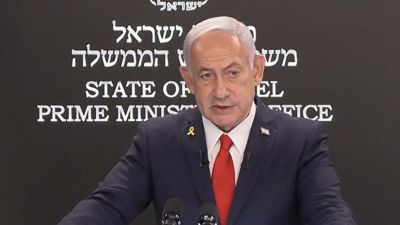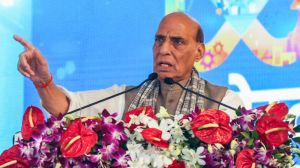Crackdown on illegal immigration after attack on Saif, 12 Bangladeshi nationals deported this year
The data also shows that 152 Bangladeshi nationals, who police said were found staying illegally in the city, were deported in 2024 when around 215 cases were registered as part of the crackdown, leading to over 300 arrests.
 According to officers in Mumbai, their action mainly focuses on bank transactions and includes Aadhaar verification and names used commonly in Bangladesh.
According to officers in Mumbai, their action mainly focuses on bank transactions and includes Aadhaar verification and names used commonly in Bangladesh.
In its crackdown on “illegal immigrants” from Bangladesh, Mumbai Police deported 12 people back across the border, registered 160 cases and arrested 240 individuals between January 1 and February 12 this year, according to official data reviewed by The Indian Express.
The data also shows that 152 Bangladeshi nationals, who police said were found staying illegally in the city, were deported in 2024 when around 215 cases were registered as part of the crackdown, leading to over 300 arrests.
A senior officer said the action was part of an ongoing effort to tackle illegal immigration. Police sources, however, said the crackdown has gained momentum after the arrest of Bangladeshi national Shariful Islam for the attack on actor Saif Ali Khan inside his Bandra home on January 16. The accused, they said, was allegedly found to have a duplicate Aadhaar card with his photo and an Indian SIM card.
The police action has also gained significance amid the ongoing deportation of illegal Indian immigrants by US authorities.
According to officers in Mumbai, their action mainly focuses on bank transactions and includes Aadhaar verification and names used commonly in Bangladesh.
“In cases where we have all the evidence, such as passport number or other documents confirming nationality, we contact our Special Branch department for a restriction order to be issued and immediately deport the individuals by taking them to the border and handing them over to the Border Security Force,” a senior officer said.
“But in instances where the police find that the illegal immigrant owns Indian documents, a case under the relevant sections of cheating and forgery is registered, and evidence is gathered. After the trial process in court, the police initiate the deportation process. All of this takes time,” the officer said.
Apart from various means of identifying illegal immigrants, such as tapping sources on the ground and acting on tip-offs, the police undertake “a unique and tedious exercise” to track them down, another officer said.
“We obtain data on registered mobile numbers in a selected area. The data dump contains thousands of mobile numbers from which calls have been made from the selected location. This data is then scrutinised, and suspicious numbers — those that make calls to Bangladesh or have typical Bangladeshi names on the TrueCaller app — are flagged,” the officer said.
“For instance, if a name has ‘Sek’ for Shaikh, ‘Molik’ for Malik, or ‘Rafiqul’ for Rafiq, we know it could possibly be Bangladeshi since these names are common there. The suspected individuals are then picked up for questioning after their call records show a connection to Bangladesh. Most admit that they migrated illegally from Bangladesh during questioning,” the officer said.
“An individual is only called for questioning when we are 100 per cent confident. We gather evidence by checking bank transactions, especially money sent to Bangladesh. Also, in cases where we find an Aadhaar card, we report it to the nodal office of UIDAI, which helps us confirm its authenticity,” the officer said.
In addition, the officer said police teams also keep a close watch on labour hubs such as construction sites and markets. “Sometimes, a source walks up to the police station and informs us. For example, in one recent case, a couple had a fight, and the man arrived at the police station informing us that his girlfriend, who is from Bangladesh, was staying illegally in Mumbai. Action was taken accordingly,” the officer said.












